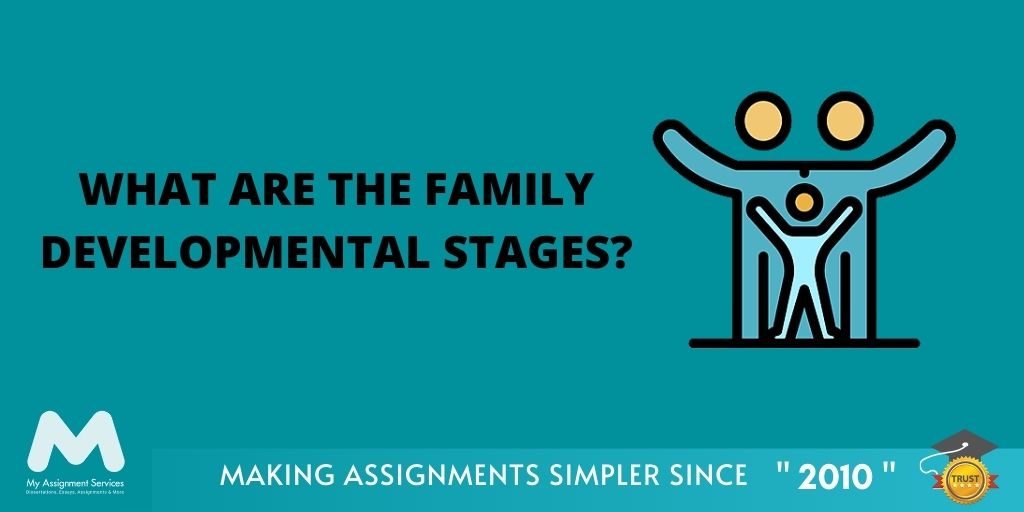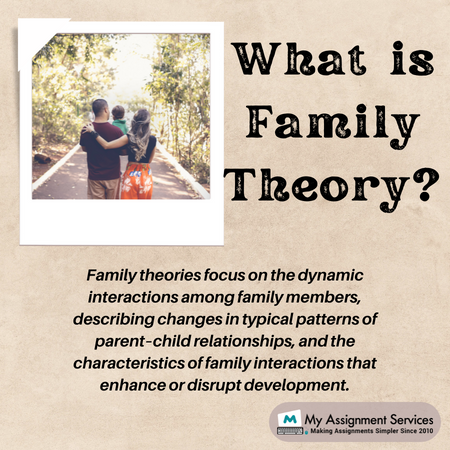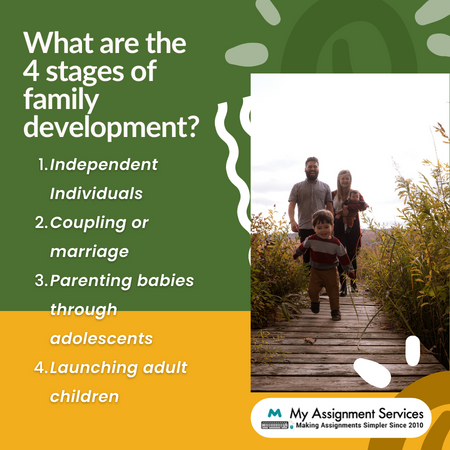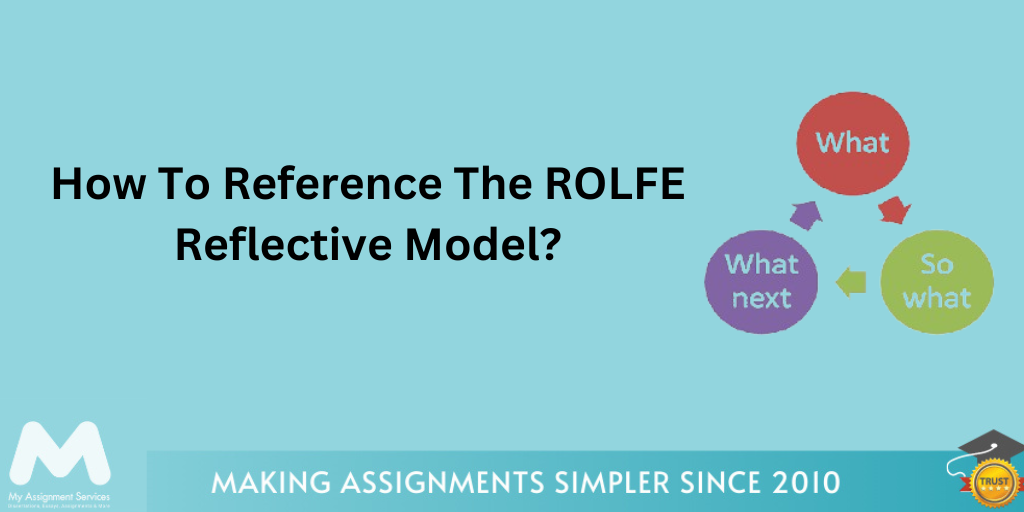
Families are one of the most integral parts of each of our lives. There are several types and sizes of families. From nuclear and multi-generational to single-parent families, all possess distinct dynamics and societal perceptions. The fundamental concept of family development is the instinctual need for humans to interact with their surroundings, which is the basis for family developmental theory.
Only seventy-eight thousand people registered their marriage in 2020 due to COVID-19. It is a huge fall compared to one hundred thirty thousand and more registering their marriages in 2019. - Australian Institute of Family Studies.
Getting married, having children, and launching children into society to multiply further. Well, it is a bible quote and also the basis of the family development theory. Thus, the intuitive understanding of an individual is through their interactions with the surrounding and the surrounding people.
The theory entails that the person’s psychological development is not due to the intrapsychic; it is regulated and developed based on interactions. The most influential and long-lasting impact of any person’s development is their familial development. Let’s learn more about this theory - the principles and real-world applications.

What Are the Different Family Development Theory Stages?
Furthermore, Bowen's family theory originates from the societal views of a family. He described families as an emotional system that comprises distinct emotional units. The interactions of these units describe the nature of the family. The nature of different family members connects them intensely through their emotions.
Families develop per the focus the pattern and system of exchange between the different units/family members as they proceed through the life cycle. A social group with at least one parental figure and a child pursuing a parent-child relationship is called a family. The societal norms govern and organize a family group.
The different stages of families are:
Independent
When individuals enter adolescence or adulthood, they strive to become physically, emotionally, financially, and socially independent. In this stage, individuals develop characteristics that define their personalities.
Coupling or marriage
The coupling stage is the first stage of the origin of a family. Individuals interact depending on the trust they develop in the independent stage. This stage aims to establish a family and a new lifestyle.
Parenting
Parenting is an intricate family developmental theory stage. It incorporates further stages like:
Babies through adolescents
It comprises three stages - decision-making to have babies, caring for young children, and parenting adolescents. The stage consists of family members interdependent.
Launching adult children
The next stage is also known as the empty nest. Children leave home to become independent and use significant skills developed through the previous stage.
Middle-age families
The age when individuals retire from work and reap the fruits of their hard work. This stage isn’t the same for everyone; some care for older parents, and others witness their grandchildren being born.
The family experience is the primary source of any individual’s interaction with the world. The adjustments and transitions are a result of the family’s emotional bond. Additionally, circumstances like the death of loved ones or medical conditions also play a major role in the individual responses to adapt. The family development theory comprises examples like the various circumstances a family goes through per the adjustments in their dynamics and things they face.
More than two hundred ninety thousand children were born in Australia in 2020. - Australian Institute of Family Studies.
As a university student, you need to complete your family development theory research paper as a part of your academia. Researching is easier said than done. Finding the right resources is a challenging task. Enrol today to get Early Childhood Assignment Help from experts in the field. You will get free access to our academic resources and guidebooks to help you develop the perfect research paper.
What Is the Major Assumption of Family Development Theory?
The family theory is a theoretical assumption of what a family should be per societal perception. But, over the years, researchers have found that families don't fit the family theory. For instance, children launched into society return to their parents - alone or with their children. The basis of the theory persists, but the family dynamics in the modern world are different.
Additionally, the family theory documents the development areas, responsibilities, growth, and challenges that arise throughout the life cycle. Families/individuals must adapt to different circumstances for the family’s survival. Necessary steps must be fulfilled to maintain the family dynamics that entail the growth of each individual.
Moreover, the major assumptions in the family developmental theory are:
- The collective behavior of the family results from the previous experiences of each family unit. This entails their expectations for the familial/individual future.
- Families change and transition over time at a consistent pace or manner. As previously discussed, this assumption has greatly changed for modern families.
- Each family member must complete set tasks in a period to develop at personal levels and enrich society.
- Factors like genetics and the environment entail the families' behavior and participation in society.
- Healthy mutation and growth result in the effective development of individuals and families. This is one of the most common assumptions that people abide by. Improving oneself can help families and communities grow.
In Australia, seventeen percent of first-time mothers are thirty years of age and above. - Australian Bureau of Statistics
Brown’s theory has a narrow application to the apparent-world families. The limited perspective and assumptions are the theory's shortcomings as it focuses on expanding explanations rather than addressing the real-world issues in a family. Also, it describes only one type of family, but in today’s world, there are issues like divorce, spouse’s death, unmarried parents, and nuclear heterosexual families.
Although, the life cycles in the family theory are accurate and useful. It describes how the different stages connect in a life cycle. It offers a standard pattern for family development. Still, it does not identify the socio-ethical factors like race, ethnicity, religious beliefs, and other societal orders. So is it really useful?

How Do Some Family Development Theory Examples Establish the Theory in the Real World?
The family development theory focuses on transition stages and developing skills that help individuals in society. A most common example is the skills that children learn at school. Everything - academic and moral concepts - that students learn at school aims at helping children adapt to participate in society in the future.
Besides, in today's world, it is not necessarily true that children will learn and develop at a standard pace. The most common distraction for children is technology influences and lifestyle choices. Moreover, children do not essentially learn everything they learn; it depends on effective parenting.
The need for family theory- regardless of its shortcomings - is that it lays a foundation for the development of family members. The transitions in the family theory are also accurate for every individual in society. So, you may wonder how is that even relevant? As discussed in the section above, there are different types of families.
The fundamental goal for each type of family remains the same, launching their children into society to be successful individuals. Every parent is inexperienced, and often single parents do not know the ropes of raising children. The family developmental theory essentially supports such individuals. Moreover, they may not have the right methods, but their motive is justifiable per this approach.
“Those who educate children well are more to be honored than those who produce them; for these only gave them life, those the art of living well.” ― Aristotle.
Do you face issues writing your assignments because the technical lexical is too confusing, or you just can’t find the right resources to compose your papers? Get Childcare Assignment Help from academic experts who assist you in comprehending and understanding your coursework. So, fill out the enrolment form to access our library free of charge and get solved sample assignments.
Related Study Materials
Our Experts can answer your Assignment questions instantly.
Ask Question0 Comment
Get It Done! Today
1,212,718Orders
4.9/5Rating
5,063Experts













Loved reading this Blog? Share your valuable thoughts in the comment section.
Add comment